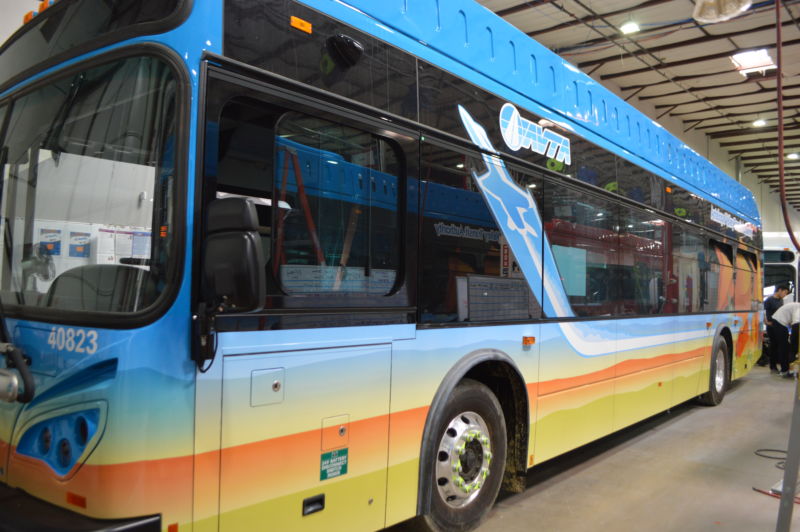California transit agencies have 21 years to build zero-emissions bus fleets

On Friday, California’s Air Resources Board (CARB) unanimously approved a regulation that would compel the state’s public transit agencies to build zero-emissions fleets by 2040. According to the San Francisco Chronicle, the regulation would also prohibit transit agencies from investing in diesel- or gas-powered buses after 2029. Buses usually last about 12 years before they need to be replaced, the Chronicle noted.
In a press release on Friday, CARB noted that the transportation sector contributes 40 percent of the state’s greenhouse gas emissions, and 80 to 90 percent of the state’s smog-creating pollutants. “Full implementation of the regulation adopted today is expected to reduce greenhouse gas emissions by 19 million metric tons from 2020 to 2050 – the equivalent of taking 4 million cars off the road,” CARB wrote.
Battery-electric and fuel cell buses are two potential avenues for investment, CARB noted. The air resources board added that roughly 12,000 gas- or diesel-burning buses are on California’s roads today, but only 153 zero-emissions buses are in operation in California today. Still, based on orders placed by transit agencies, 1,000 such buses are expected to be in service by 2020.
The regulation specifies that large public transit agencies must develop a plant to meet CARB’s goal, and submit it to the board by 2020. Small public transit agencies have until 2030 to develop their plans. Plans must include details about infrastructure build out and workforce training. Transit agencies may also have to re-work their routes: for battery electric buses, the necessity to recharge periodically requires different planning in terms of route structure and length than routes served by fossil fuel-powered vehicles. Transit agencies will have access to incentive and grant money to fund the transition, so of which will be provided by the state’s utilities, who stand to benefit from the additional industrial-sized customers.
CARB said on Friday that it expects transit agencies will “save $1.5 billion in maintenance, fuel, and other costs by 2050 after the full buildout of infrastructure.” Like electric vehicles, electric buses are generally more expensive upfront, but have a lower total cost of ownership than comparable fossil fuel-burning vehicles.
In September, California legislators passed a law requiring that the state’s utilities provide 100 percent zero-emissions electricity by 2045. The law is one of the most ambitious in the US, given California’s size.
https://arstechnica.com/?p=1428945